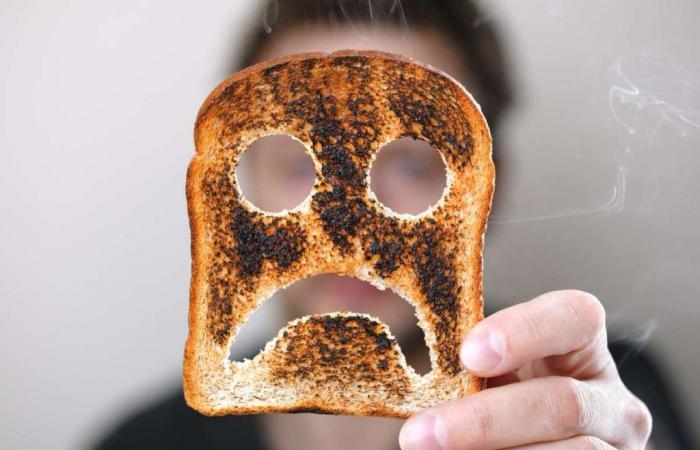Yasmin Brunet’s time on “Big Brother Brasil 2024” (“BBB 24”), which ended last week, when her “sister” was eliminated, involved, even despite her will, a series of issues that had repercussions – and a lot – outside the most watched house in the country. The model, influencer and businesswoman found herself entangled, for example, in debates about aesthetic pressure, ageism and machismo, having her body and age being the target of criticism from other participants. Furthermore, in the midst of discussions that her presence in the attraction brought to light, one of the main highlights was her compulsion to eat, a type of eating disorder that Yasmin lives with, and about which she talks openly.
For experts, exposing the topic on a leading audience program can contribute to a better understanding of what eating disorders are, which are still surrounded by taboos.
“Different from what many think, food compulsion is not just a lack of willpower, it is, in fact, an eating behavior disorder, which is associated with the feeling of compensation and momentary relief and which requires monitoring. with the appropriate professional. When left untreated, compulsion can lead to weight gain, low self-esteem, in addition to a deep feeling of guilt and sadness, which can lead to more serious problems, such as depression”, points out psychologist Juliana Meneghelo, a specialist in quality of life, longevity with quality and healthy weight loss.
She details that, in general, eating disorders (ED) are psychiatric illnesses characterized by serious changes in eating behavior. In addition to compulsion, he says, the most common forms of these disorders include Anorexia Nervosa and Bulimia Nervosa, affecting both women and men and can develop during any stage of life, although they generally appear in adolescence or young adulthood.
“Anorexia and bulimia nervosa are the two main types. These two diseases are closely related because they have some symptoms in common: excessive concern about weight, distorted body image and a pathological fear of gaining weight. In both disorders, weight and body shape have a marked influence on determining patients’ self-esteem, which, as a rule, is lowered”, adds the specialist.
Origin
Regarding causes and risk factors, Juliana Meneghelo indicates that eating disorders have a multifactorial etiology, being determined by a diversity of biological, genetic, psychological, sociocultural and family factors that interact with each other to produce and perpetuate the disease. “Psychosocial sequelae and clinical complications related to impaired nutritional status and inadequate compensatory practices for weight control are experienced by those with these disorders”, she adds, pointing out that biological and psychological losses and increased morbidity and mortality are also common.
Nutritionist and eating behavior therapist Ana Soares, creator of @mosaicodanutri, adds that individuals with personality traits such as low self-esteem or obsessive and perfectionist tendencies are at greater risk of developing anorexia nervosa (AN), while impulsivity and affective instability may be associated with bulimia nervosa (BN). “In addition, a history of depression and anxiety, as well as traumatic experiences such as sexual abuse, can be a risk factor for these diseases”, he states.
“At the family level, having relatives who have an eating disorder increases the chances of it occurring with others, whether due to genetic or interactional causes”, he adds. Ana Soares also remembers that family interaction patterns, such as rigidity and lack of care, the mother’s body dissatisfaction, the internalization of the thin ideal, dieting behavior, bulimic symptoms and a higher body mass index of the mother and father father increase the chance of eating problems appearing in childhood, which may increase the risk of developing dysfunctional eating behaviors in the future, while family disorganization may be linked to bulimia.
Finally, the therapist highlights that, in the sociocultural context, the ideal of thinness imposed by society exerts significant pressure on individuals, increasing vulnerability to eating disorders. “In addition, the tendency to obesity and neurophysiological changes are also implicated in this complex interaction of factors”, she warns.
Symptoms
“Food compulsion is characterized by excessive consumption of food in a short period (about two hours), even if the person is not hungry and satiated, accompanied by a feeling of loss of control over the compulsive episode”, indicates the psychologist Juliana Meneghelo.
In turn, anorexia is characterized by intense and intentional weight loss, at the expense of highly restrictive diets, unbridled search for thinness, refusal to maintain body weight above the minimum normal for the age, amenorrhea (absence of three consecutive periods) and distortion of body image.
Bulimia is characterized by periods of heavy food intake (bulimic episodes), during which a large amount of food is consumed in a short period of time, associated with a feeling of lack of control over eating behavior and excessive concern about control. of body weight. “Such concern causes the patient to adopt compensatory measures in order to avoid weight gain”, he points out.
Still in the case of bulimia, Juliana states that self-induced vomiting occurs in around 90% of cases, being the main compensatory method used. “The immediate effect caused by vomiting is the relief of physical discomfort secondary to overnutrition and the reduction of the fear of gaining weight. Other mechanisms used by bulimics to control weight are the inappropriate use of laxatives, diuretics, thyroid hormones, anorectic agents and enemas. Prolonged fasting and excessive physical exercise are also ways to control weight”, he reinforces.
Consequences of negligence
“Eating disorders can cause serious problems to physical and mental health. They rank as the third most prevalent chronic disease in female adolescents, after obesity and asthma. They cause great suffering for affected individuals and their families, negatively affect quality of life, require high healthcare costs for treatment, and are responsible for the highest risk of mortality among all mental disorders”, states Ana Soares, remembering that the diagnosis is more in young women, aged 18 to 30. “Although less common in men, the severity is the same and homosexual men have a greater predisposition than heterosexual men”, she mentions.
The warning is also echoed by Juliana Meneghelo. She reinforces that these disorders have the highest mortality rates among psychiatric disorders. “One death every 52 minutes is a direct result of an eating disorder. In addition to these alarming statistics, there is a strong connection between eating disorders and suicide. According to the National Association of Anorexia Nervosa and Associated Disorders (Anad), 26% of people with eating disorders attempt suicide”, he asserts.
Treatment
Given the severity of complications associated with eating disorders, Ana Soares explains that the treatment of eating disorders is carried out by a multidisciplinary team, including professionals from psychiatry, psychology and nutritional therapy, and the use of medication may even be indicated to control symptoms. . “Support from family and friends is very important, as it is a challenging, time-consuming treatment and recovery takes time. However, with adequate support, many people can overcome and have a healthy and fulfilling life”, assures the therapist.
Juliana Meneghelo adds that, in order to be functional, the patient must engage with the treatment. “The person needs to accept help to solve the problem and commit to changing their habits. The problem is that patients with eating disorders may feel embarrassed to admit that they have a problem with their eating habits; believing that they must overcome the disorder alone; not perceiving the disorder as an illness; and consider your habits ‘useful’. At this point, it is important to emphasize that this occurs because people with eating disorders generally have a distorted image of their own body. Such perceptions lead to obsessive thoughts, which are always very difficult to modify,” she concludes.
Identification
Ana Soares highlights that the team at the Vulnerability and Health Research Center (Naves) at the UFMG Faculty of Medicine developed a tool in 2021 for early diagnosis of anorexia, bulimia and compulsive eating disorder. Called SCOFF-BR, it is a short questionnaire, with five quick questions that can be used by any health professional or even lay people to identify the risk of eating disorders, which can be invasive and cause a lot of suffering.
Check out the SCOFF-BR questionnaire:
- Do you induce vomiting when you are feeling uncomfortably full?
- Do you worry that you have lost control of how much you eat?
- Have you recently lost more than 10 pounds in a 3-month period?
- Do you believe you are fat despite other people saying you are too thin?
- Would you say that food dominates your life?
If the person responds positively to at least two questions, it is recommended to consult a doctor. The diagnosis of an eating disorder can only be made by a specialist.
—
THE TIME reinforces the commitment to quality, professional and Minas Gerais journalism. Our newsroom produces responsible information every day that you can trust.
Follow THE TIME on Facebook, on Twitter and on Instagram. Help grow our community.






